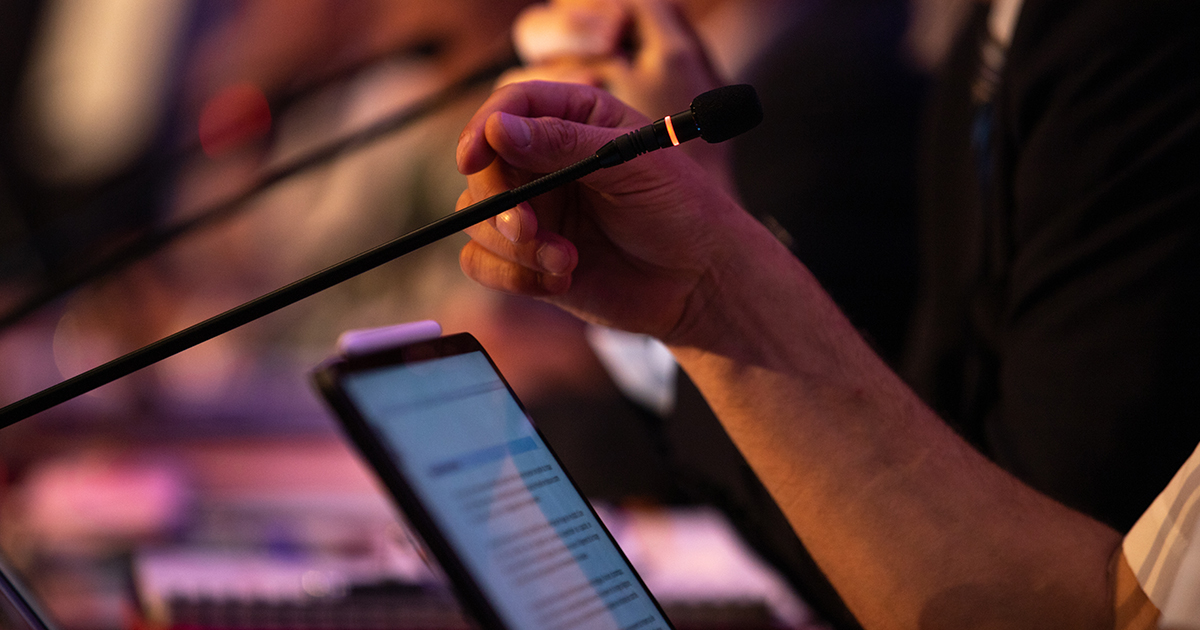Global Perspectives Through Academic Discourse
LAU’s Department of Political and International Studies debuts its Guest Speaker Series to provide students with the knowledge and tools needed to contribute to meaningful change.
As the country wrestles with economic hardship, political instability, and recent humanitarian concerns, there is an urgent need for education that imparts knowledge and at the same time cultivates a sense of global responsibility.
To nurture a well-rounded and informed student body capable of navigating the modern world, as well as reinforce LAU’s commitment to academic excellence, the Department of Political and International Studies (POLIS) at LAU’s School of Arts and Sciences held a series of discussions between October and November to address pressing world topics, from displacement crises to humanitarian needs and peacebuilding across diverse, afflicted regions.
The discussions fell under the department’s new Guest Speaker Series and aimed to equip students with the indispensable skills, perspectives and critical thinking in an increasingly interconnected world. They were also designed to help LAU students expand their academic and professional horizons by exposing them to different outlooks on global challenges.
With the help of leading international professionals, “each of these discussions exemplifies the department’s effort to cultivate a multidimensional learning experience,” said POLIS Chair and Associate Professor of Political Science and International Affairs Imad Salamey. “The focus is not merely on the transfer of knowledge but on empowering students to challenge conventional judgment, and approach problems with solutions that reflect a deep understanding of cultural, political and economic contexts.”
One discussion, for example, explored the scale and nature of displacement in Lebanon. Led by UNHCR Representative in Lebanon Ivo Freijsen, the session, titled Navigating Multi-Displacement and Response Challenges in Lebanon: Insights from UNHCR, underscored the importance of international cooperation, humanitarian outreach, and the active role that young people—particularly university students—can play in addressing protracted crises.
Equally significant were discussions centered on career-focused guidance in legal frameworks, such as How to Become a Lawyer in the US led by Paola Hamieh, a lawyer at the Utah State Bar, which provided students with insights on adapting to different study methods and preparing for bar exams.
Additionally, a talk titled Behind the Bench: A Judge’s Journey and Insights Into the American Legal System by Judge of the Michigan Third Circuit Court Yvonna Abraham shed light on concepts like judicial precedents, federal and state jurisdictions, and the nature of case law in the US.
“The importance of these talks is to provide students with a clear sense of direction by demystifying the processes and to show them the possibilities in international legal careers,” noted Dr. Salamey.
By interacting directly with professionals who have shaped policies, the students were encouraged to think globally while remaining mindful of their local and regional contexts, a requisite in a country that often grapples with regional and international issues.
Dr. Salamey added that inviting high-caliber speakers to present at LAU allows the students to reconsider preconceived notions and foster a sense of agency to see themselves as active participants in addressing societal challenges, whether in legal, humanitarian or political spheres.
“I feel like I really gained a firsthand understanding of what it means to translate knowledge into action,” said political science and international affairs graduate Reem Haidar (BA ’23), who was thankful to LAU for continuously setting a standard for what higher education can achieve.
Building on the success of these events, the department plans to continue organizing discussions and introduce a wider range of topics that reflect evolving challenges in politics, law and humanitarian work.
